Dr. Jean Watson is a Distinguished Professor and Dean Emerita at the University of Colorado Denver campus, where she held the first endowed Chair in Caring Science for 16 years. As a pioneer in the field of nursing, Dr. Watson founded the original Center for Human Caring in Colorado and has been a prominent figure in the nursing community, serving as a Fellow of the American Academy of Nursing and as a past President of the National League for Nursing. She is also a founding member of the International Association in Human Caring and the International Caritas Consortium. Dr. Watson’s dedication to nursing and caring science is evident in her numerous achievements. She is the Founder and Director of the Watson Caring Science Institute, a non-profit foundation committed to advancing the field of caring science globally. Her contributions have been recognized with numerous awards, including the prestigious Living Legend honor from the American Academy of Nursing in 2013. Additionally, she holds 16 Honorary Doctoral Degrees, with 13 being international, reflecting her global influence in nursing.
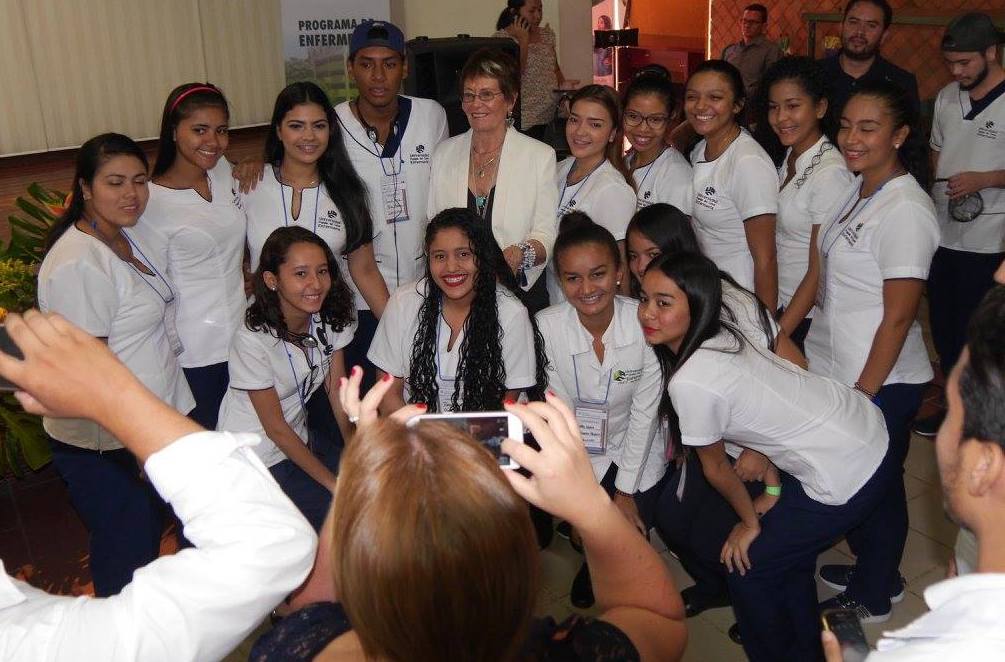
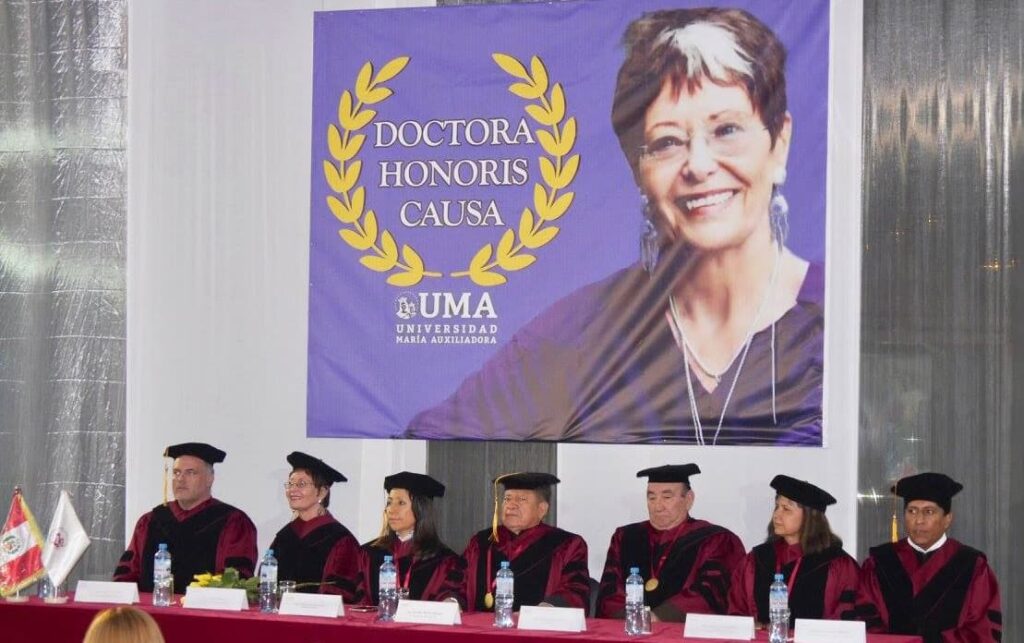
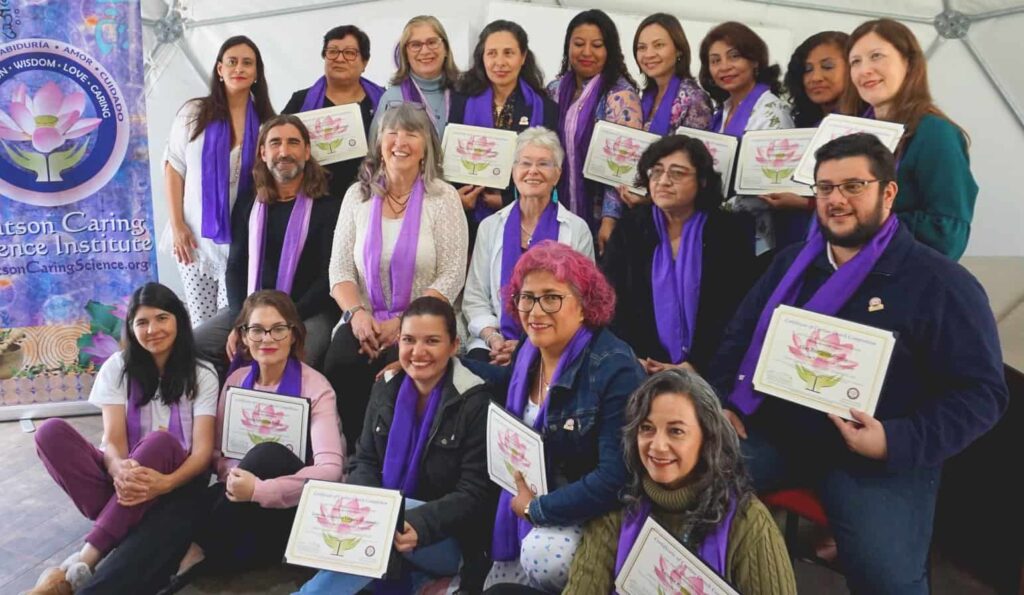
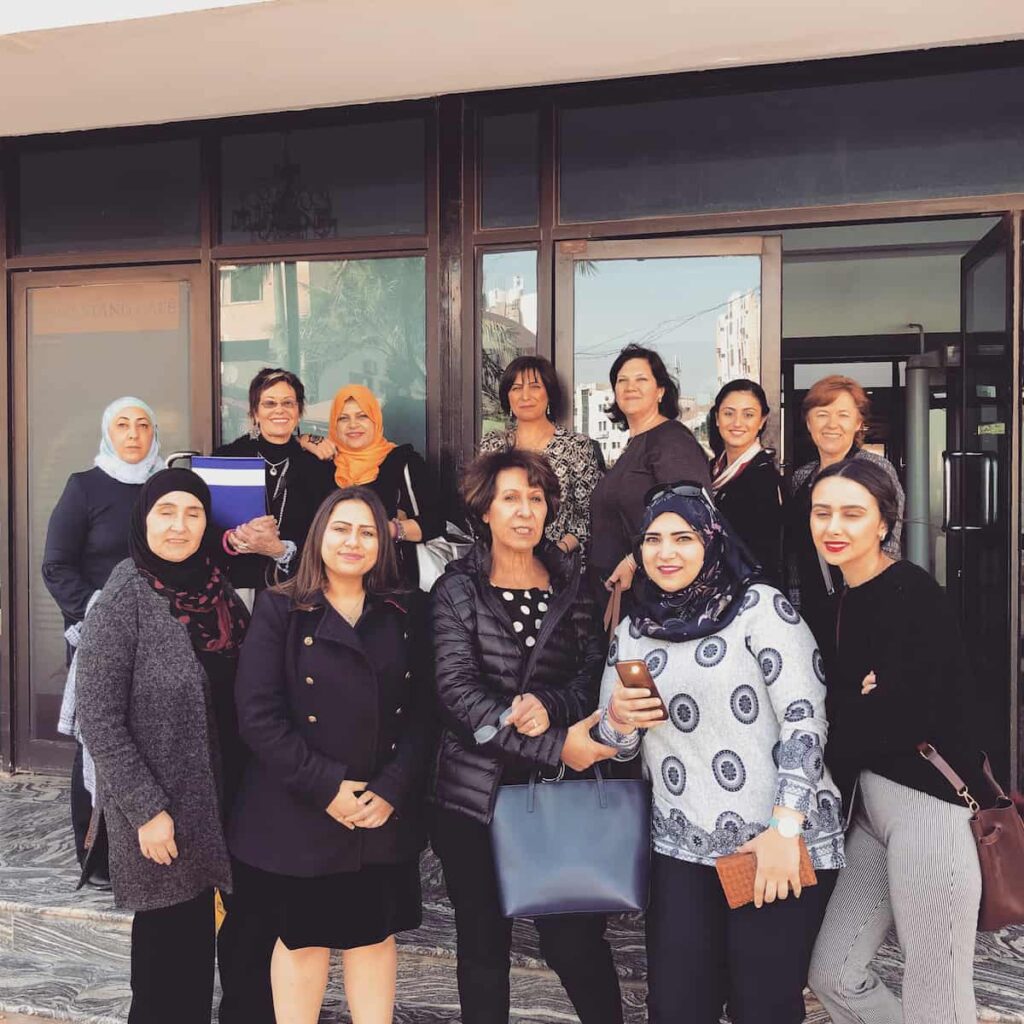
Her journey began in a small town in Southern West Virginia, where she grew up with a strong sense of community and an acute awareness of human suffering and social disparities. These early experiences shaped her deep empathy and commitment to understanding and addressing the human aspects of healthcare. Although she did not initially plan to pursue nursing, a personal tragedy led her to nursing school in Virginia in 1958. There, she became increasingly aware of the limitations of traditional nursing education, which focused heavily on the physical aspects of patient care while often neglecting the emotional and spiritual needs of patients. Determined to broaden her understanding and improve nursing practice, Dr. Watson pursued further education, obtaining a Bachelor’s degree in Nursing with a second major in Psychology, a Master’s degree in Psychiatric Mental Health Nursing, and a Ph.D. in Educational Psychology with additional studies in clinical-social psychology and existential-phenomenological philosophy.
In 1973, Dr. Watson joined the faculty at the University of Colorado, where she became increasingly aware of the need for a philosophical foundation in nursing that emphasized the importance of human caring. This realization led her to write her first book, “Nursing: The Philosophy and Science of Caring,” which has since become a classic in nursing education and has been translated into multiple languages. Throughout her career, Dr. Watson has held various academic and executive leadership positions, including Chairperson, Assistant Dean, Associate Dean, Director of the Doctoral Program, and Dean of Nursing. Despite her professional achievements, she faced significant personal challenges, including the loss of an eye due to a traumatic injury in 1997 and the tragic death of her husband in 1999. These experiences profoundly influenced her work, leading her to integrate her personal journey with her professional scholarship, as seen in her book “Caring Science as Sacred Science.”

Dr. Watson’s leadership in the field of nursing is now driven by a higher consciousness and a deep spiritual connection, as reflected in her most recent book, “Metaphysics of Watson Unitary Caring Science: A Cosmology of Love.” Her ongoing commitment to advancing caring science led her to establish the Watson Caring Science Institute in 2012, ensuring the continued growth and dissemination of caring science practices in nursing and health sciences worldwide. Dr. Jean Watson did not actively seek leadership positions throughout her career but accepted them as a natural extension of her passion and responsibility to advance the field of nursing. Her inspiration to step into leadership roles stemmed from her deep desire to provide a voice and a meaningful philosophical foundation to nursing, distinguishing it as a unique and essential discipline in healthcare, separate yet complementary to medicine. At a time when nursing education lacked theoretical and philosophical-ethical courses in patient care, Dr. Watson recognized the need for a more profound approach that embraced the human aspects of care.
As a faculty member at the University of Colorado, Dr. Watson became deeply involved in academic and clinical research, which laid the groundwork for her lifelong dedication to caring science in nursing. Her first book, along with subsequent research grants, brought her national and international recognition. This visibility led to numerous invitations for keynote speaking engagements, consultations, and leadership roles within the professional community. Dr. Watson’s contributions were not only intellectual but also transformative, as she provided the theoretical and philosophical underpinnings for the nursing discipline. This work naturally led her to take on various administrative and executive roles, including the first-ever Endowed Chair in Caring Science, Chairperson, Assistant Dean, Associate Dean, Dean, and eventually, Distinguished Professor, which is the highest honor the University of Colorado bestows for academic distinction. In 2013, her contributions were further recognized when she was awarded the title of “Living Legend” by the American Academy of Nursing, the organization’s highest honor. She is also honored to have received 15 Honorary Doctorates from institutions around the world.
Throughout her journey to leadership, Dr. Watson faced significant challenges. In the 1970s, nursing was just beginning to gain recognition as a profession worthy of advanced degrees, including doctoral programs. However, there was still a strong emphasis on aligning nursing with medical science to gain professional standing, and caring science was often dismissed as “soft” compared to the “hard” sciences. This made it difficult for nursing to be taken seriously as a scientific discipline. Moreover, as an Academic Executive Dean, Dr. Watson found herself as the only woman in an executive role within the University of Colorado’s four-campus system, which included Deans, Chancellors, the Board of Regents, and the Colorado Commission of Higher Education. The academic health science culture at the time prioritized medical science, research funding, and the economics of patient care, often overlooking the importance of nursing scholarship and the practices of caring science. In this male-dominated, patriarchal environment, Dr. Watson faced the challenge of advocating for nursing and introducing innovative clinical models of caring and healing to elevate the health and caring sciences within a medical-science-dominated institution.
Despite these challenges, Dr. Watson’s unwavering commitment to nursing and caring science has left an indelible mark on the field, paving the way for future generations of nurses and healthcare professionals to embrace a more holistic and human-centered approach to patient care. To overcome the challenges she faced, Dr. Jean Watson relied on her dedication to publishing, consulting, and speaking. She used her keynotes, publications, and writings to establish the credibility of nursing and caring science within academic medical and health science centers. By focusing on the language, models, and research of caring, she was able to demonstrate the vital role of nursing and caring science in these institutions. As Dean of Nursing from 1982 to 1999, Dr. Watson sought to gain external support for the University of Colorado School of Nursing by creating a “Distinguished Visiting Board.” This board included prominent national and international figures, such as corporate leaders, academic scholars, healthcare executives, and philanthropists. Their support helped advance the mission of the School and provided public endorsement for the vision of advancing human caring science. The board’s involvement was crucial in establishing interdisciplinary programs in caring science, leading to the creation of the Center for Human Caring (CHC), the first of its kind. The Denver Nursing Project in Human Caring, a collaboration between the School of Nursing and local health facilities, demonstrated the effectiveness of Watson’s Theory of Human Caring by significantly reducing hospital costs for AIDS patients.
The CHC became a hub for interdisciplinary learning, attracting scholars and students from around the world. It offered programs in philosophy, ethics, humanities, and other fields, enriching the academic environment. One notable initiative was commissioning poet Marilyn Krysl to capture the essence of human caring through poetry, resulting in the acclaimed book “The Midwife and Other Poems on Caring,” which continues to inspire nurses globally.
Under Dr. Watson’s leadership, the School of Nursing’s research program achieved national recognition, ranking fifth in the nation for federally funded nursing research. She also fostered new partnerships with clinical agencies to develop academic-clinical projects, bridging the gap between the university and the broader healthcare community. This collaboration led to the establishment of a groundbreaking post-baccalaureate doctoral Nursing Degree (ND) in Human Caring, Healing, and Health, making the University of Colorado the first public university in the U.S. to offer such a degree with community support. This degree laid the groundwork for what would become the Doctorate of Nursing Practice (DNP), marking a significant cultural shift in how nursing was perceived and valued.
“We are the light in institutional darkness, and in this model we get to return to the light of our humanity.”.

Dr. Watson’s career was marked by several pivotal moments that shaped her path. One significant experience occurred during her time as a student nurse at Spring Grove State Hospital in Maryland. She worked with a severely depressed patient who was non-verbal and immobile. Despite his condition, Dr. Watson spoke to him daily and stood by him in silence, conveying empathy and presence. Witnessing his eventual improvement and discharge, the patient expressed how important her presence had been to him. This experience highlighted the profound impact of human presence and the importance of connecting with others, even when they cannot communicate. Another turning point came when Dr. Watson discovered that obtaining a doctorate in nursing was possible. While studying at the psychiatric hospital, she learned about a nursing doctoral student at Boston University. This revelation inspired her to pursue her own doctorate, fueling her vision of advancing nursing beyond its traditional medicalized role.
These experiences and milestones reflect Dr. Watson’s commitment to transforming nursing practice and education, emphasizing the significance of human caring and its role in healthcare. Dr. Jean Watson’s career has been shaped by several influential mentors and role models. One of the key figures was a nursing instructor she encountered early in her journey. This instructor, who was pursuing a doctorate in nursing, expanded Dr. Watson’s vision of what a nurse and woman could aspire to. Although the instructor was unaware of her impact, she profoundly influenced Dr. Watson’s perception of the possibilities within the nursing profession. Another significant influence came from a high school teacher, Ms. Agee, who taught English literature and Shakespeare. Growing up in a small, isolated town in West Virginia, Dr. Watson had limited exposure to the wider world. Ms. Agee’s teaching opened new horizons for Dr. Watson, introducing her to literature, imagination, and different ways of thinking. This early exposure played a role in fueling Dr. Watson’s lifelong curiosity and passion for learning and exploration.
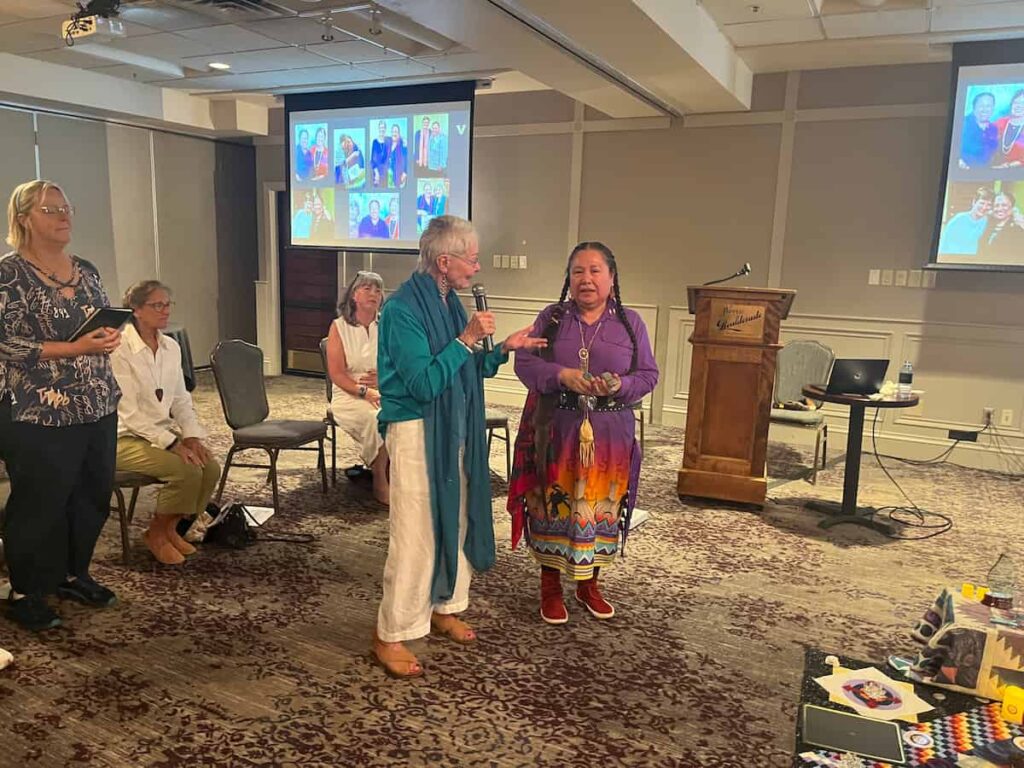

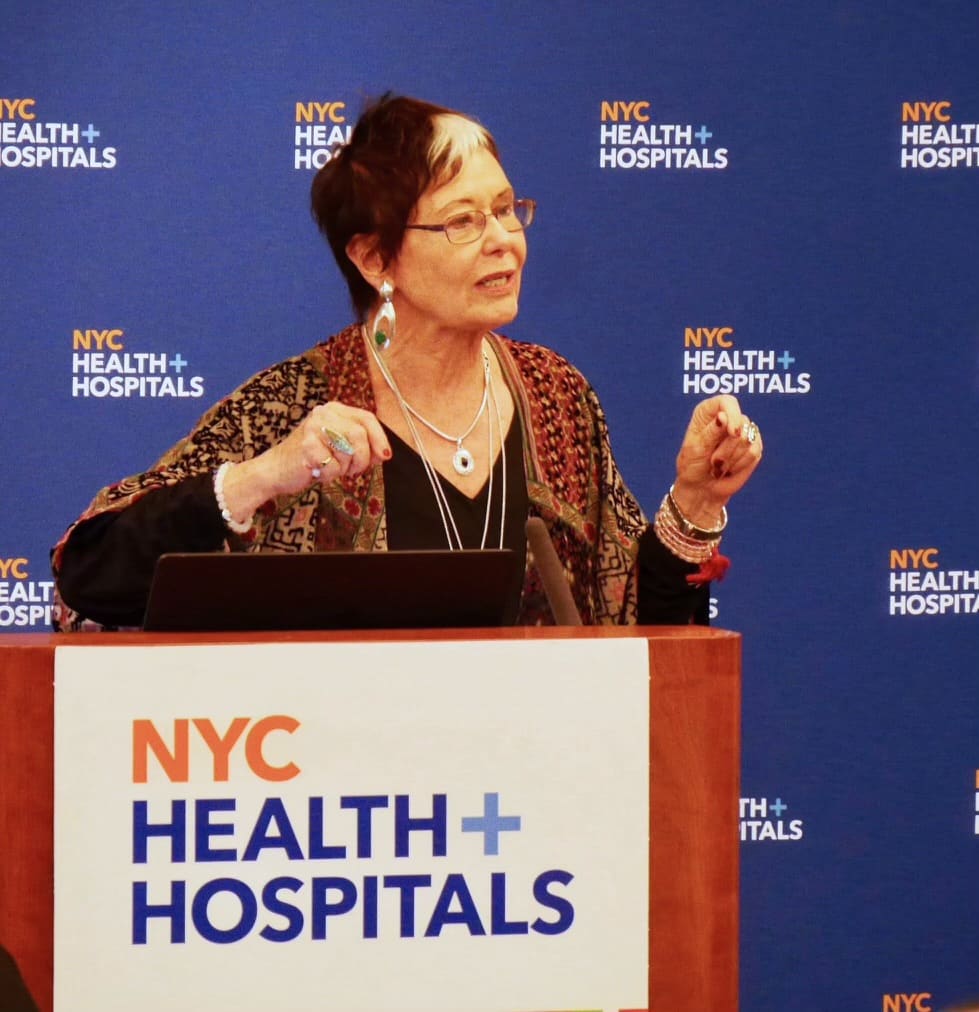

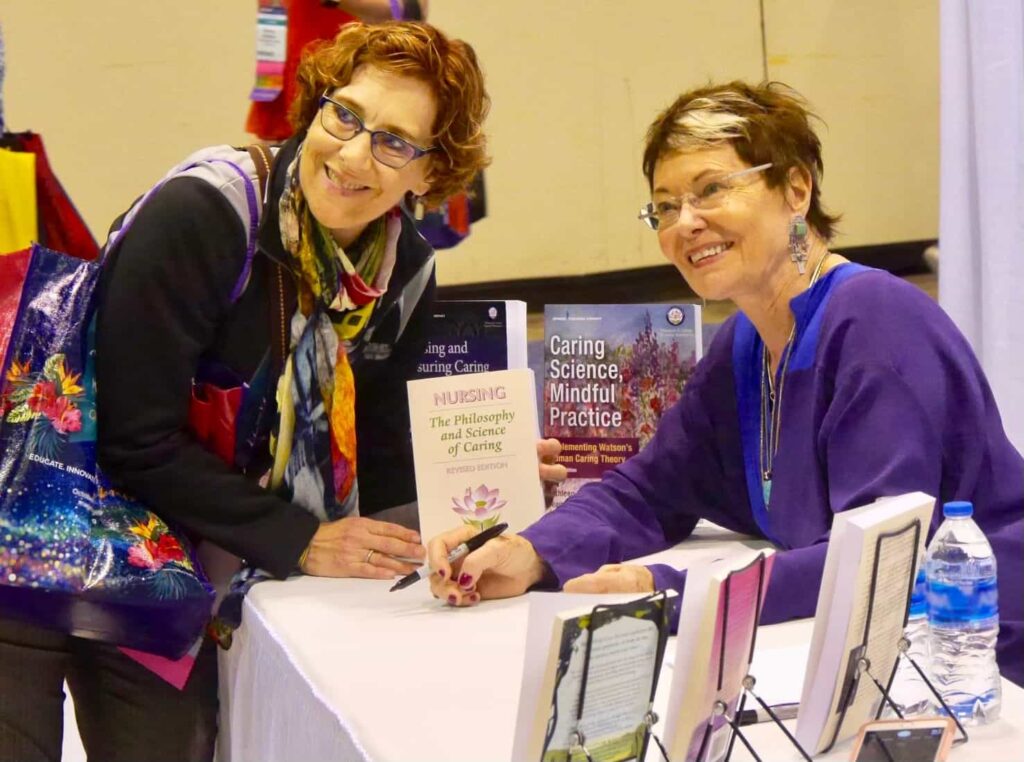

In Dr. Watson’s view, the most important qualities of a good leader include being authentically oneself, trusting one’s intuitive wisdom, and leading from the heart. She believes in being transparent, kind, and committed to a greater mission. A good leader should use their vision, voice, inspiration, moral passion, and intellectual energy to inspire and support others, fostering a culture of trust and shared consciousness. This approach helps to generate a caring environment and serves a purpose larger than one’s ego. To stay motivated and inspired in her leadership role, Dr. Watson engages in continuous learning through reading, studying, writing, and publishing. She remains active within a community of like-minded scholars and professionals, participating in global discussions and programs. By drawing on wisdom from diverse cultures and timeless ways of being, she evolves in her understanding of self, others, and the world.


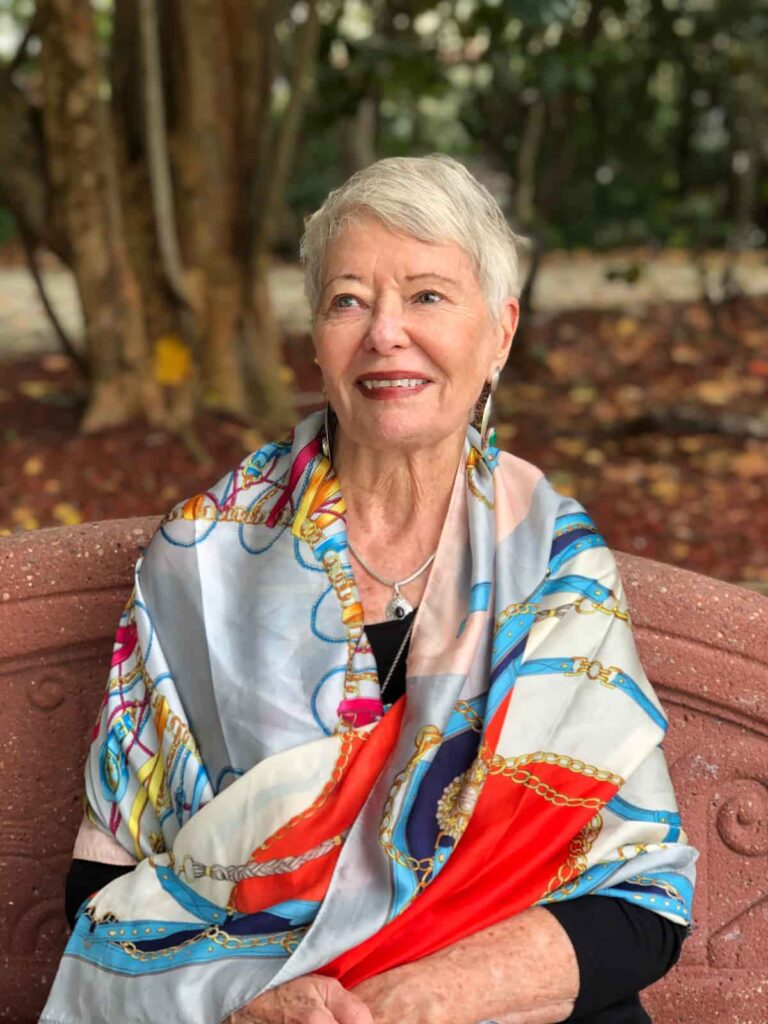
Among her many achievements, Dr. Watson is particularly proud of her work as Dean of Nursing at the University of Colorado and creating Watson Caring Science Institute to further the global covenant to advance nursing and caring science. She takes great pride in the impact she has had on educating and inspiring thousands of nurses worldwide. Additionally, Dr. Watson is honored by the numerous global and national honorary doctoral degrees she has received. A major highlight of her career is the founding of the Watson Caring Science Institute (WCSI), a non-profit organization dedicated to advancing nursing through her Caring Science. The institute offers educational programs, consultancy, and awards, and works with leading hospital systems to foster a culture of authentic caring and loving kindness. WCSI has prepared over 1,000 certified Caritas Coaches® and Caritas Leaders globally, influencing the caring practices of more than 350,000 licensed nurses and impacting nearly a million patients each year. The institute’s initiatives span across various countries, including numerous Latin American nations, Japan, Spain, Portugal, Switzerland, and regions in the Middle and Far East.
Dr. Watson’s work continues to transform nursing practices, moving from outdated technical approaches to models that emphasize caring, healing, and health for all. Dr. Jean Watson supports and mentors other women in her field through several impactful initiatives. At the Watson Caring Science Institute (WCSI), she invites national and global scholars to join as Faculty Associates, offering a platform for them to share their expertise and advance their careers. She supports both established and emerging nursing experts in human caring, creating opportunities for faculty to develop their scholarship and participate in programs and projects. This includes honoring and recognizing their unique talents and interests by integrating them into WCSI’s programs, conferences, and workshops.

Dr. Watson also developed the Watson Caring Science Postdoctoral Program for nurses interested in deepening their study within the paradigm of Caring Science. This program helps scholars focus on their personal and intellectual passions, guiding them to address their scholarship goals and enhance their professional development. The WCSI faculty and colleagues are encouraged to excel in their expertise, offering national and international consultations and speaking engagements with universities, nursing colleges, hospitals, and various professional organizations.
For young women aspiring to leadership roles, Dr. Watson advises them to know themselves well, practice compassion and patience, and honor their unique talents and interests. She suggests that they should not actively seek leadership positions but rather accept them when they align with their values and goals. It is important to listen to one’s inner guidance when taking on responsibilities and to focus on contributing to a shared vision rather than merely holding a position. Dr. Watson emphasizes that everyone can be a leader in their own way and encourages young women to consider how they can serve others when leadership opportunities arise.
Looking ahead, Dr. Watson envisions a positive evolution in the landscape of women in leadership over the next five years. She believes that women will increasingly take on leadership roles across various sectors, including corporations, governments, businesses, and non-profits. With women comprising 70 percent of the global health and social workforce, they bring a relational approach to leadership that focuses on addressing broad human and societal needs. Dr. Watson sees women as offering new energy, vision, and a worldview that honors the interconnectedness of humanity and the planet. This evolving landscape will likely see women as leaders in diverse and significant roles, influencing national and global politics, business, and social development.

